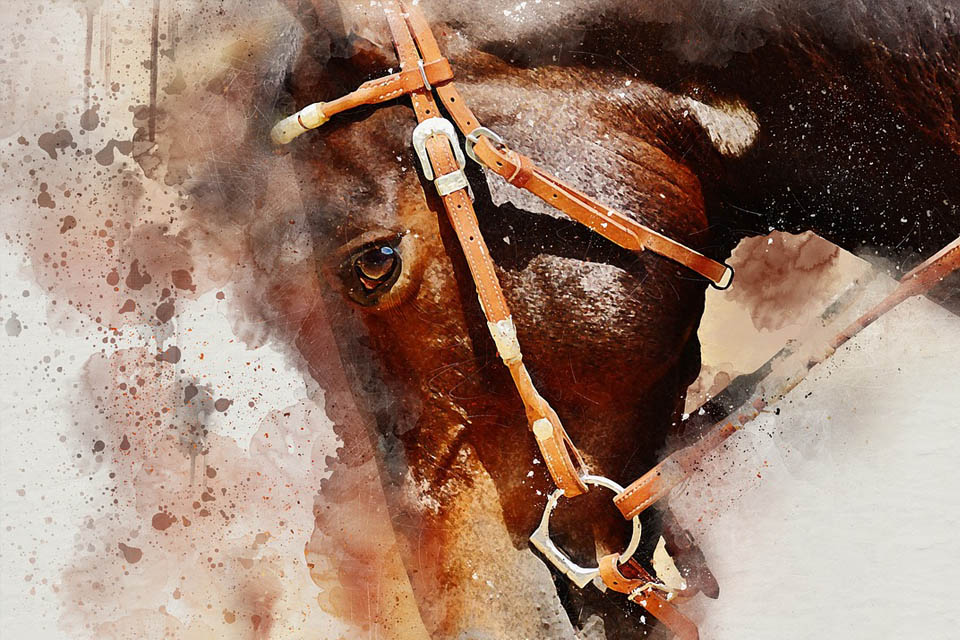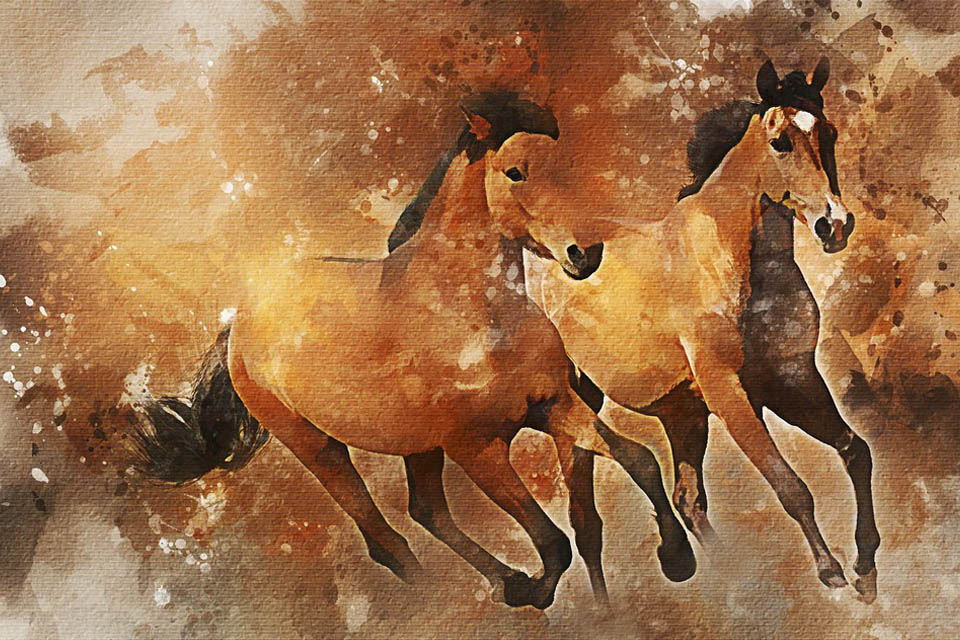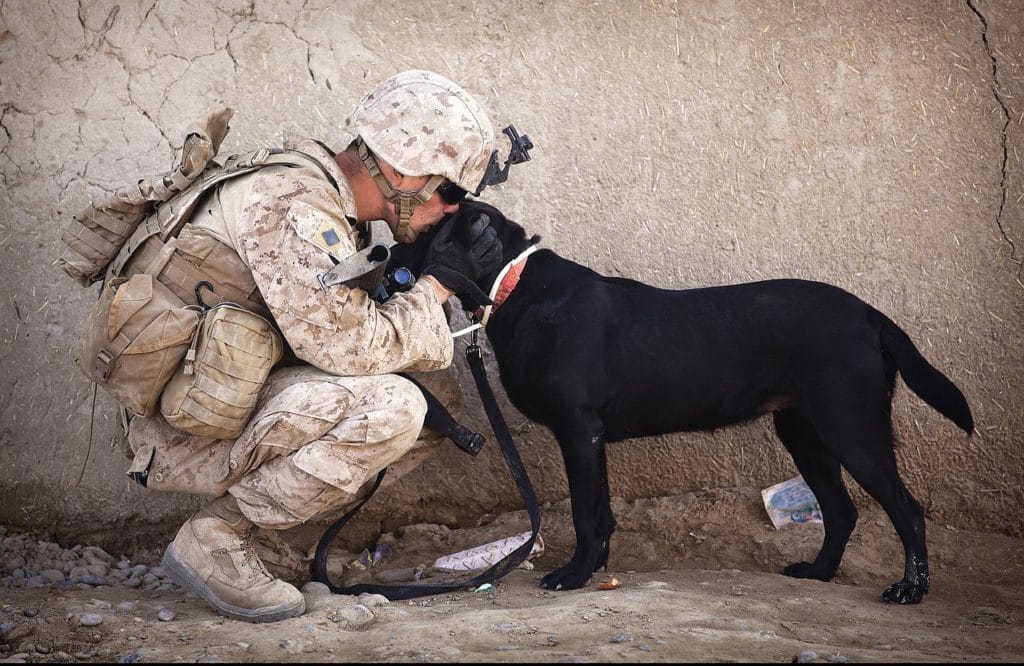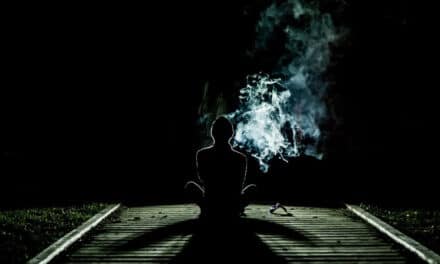
Matthew Kahl is the founder of Veterans for Natural Rights, an organization that advocates for ending the war on drugs and expanding access to plant medicines, especially for veteran suicide prevention. Matthew was involved in the Denver psilocybin initiative, and has appeared in two documentaries about soldiers treating their PTSD with psychedelics: Soldiers of the Vine, which we covered last year, and From Shock to Awe, where Matthew is one of the two central figures in the film. We spoke with Matthew recently about PTSD, the proper role of the ego, and the psychedelic and traditional therapies that can help save people’s lives.
Thanks so much for speaking with us again, Matthew. At the end of From Shock to Awe you shared that you had an ambitious goal to bring psychedelic treatment to every veteran and everyone who has trauma. Can you speak to that?
We’re facing a crisis in America. We have 121 civilians who are comitting suicide every day, and 22 of them are probably veterans. And we’re in the midst of an opioid epidemic, with around 198 people (last time I counted) who are dying as a result of overdose. And addiction is really suicide on an installment plan. People are trying to medicate their traumas into oblivion using a lot of very crude tools. Things like heroin and fentanyl and methamphetamine and cocaine can diminish the pain for a short period of time, but it comes back ten times as bad. We need to try to expand the tools that everyone has in their toolbox, and give them tools that are actually going to work to root out the problem at its source— and psychedelics are amazing for that sort of work.
If we’re going to work towards veteran suicide prevention in America, we can leave no stone unturned. We really have to broaden our idea of what medicine is, because it’s not just the pharmaceutical pills that we get from the doctor or the VA or wherever— although they will try to tell you those are the only medicines out there. Plants are medicines too.
And it’s not just eating or consuming the product from these plants that is therapeutic, it’s growing them yourself. When I first started growing cannabis, it was as therapeutic as the cannabis itself— the act of growing and taking care of another living creature, putting your energy into it and then reaping that energy tenfold at the end. It’s an exchange. This other living being is counting on you to be there every single day, and that’s another reason why equine therapy and K9 therapy both really help to start healing some of the wounds we have experienced. Deep-seated spiritual, emotional, psychological wounds in our heart.
Being able to step outside of yourself and ask, “What does this other living creature need from me right now?” can really help people flip the whole situation on its head and start asking, “How can I live for another living being?” Many people gain a lot of healing from dogs, and I’ve been privileged enough to experience equine therapy here in Colorado— another vet offered it to my organization Veterans for Natural Rights. We did six weeks of it. It was profound, absolutely profound.
You’re in a ring with a 1,500 lb. animal— I mean, this thing can easily crush you at any given moment and you don’t have the benefit of leads, saddles, none of the things that people normally use to control an animal larger than themselves. You have to really ask the horse for permission to do everything. By the end of the process, you’re actually getting up on their backs bareback and riding around on them. I would just lay there on top of it and just feel the horse underneath me, that huge living creature, and feel it react to me. And it could react to my internal emotional state. I wasn’t even expressing any emotions externally, but somehow it was still responding to me.
Towards the end of the process we actually got to work with a few horses who had PTSD. Now horses normally are kind of in a constant state of PTSD: their amygdala is huge in comparison to the rest of their brain, and they are almost always in a state of fight or flight— they are prey animals, you know? So they are always trying to check their environment, trying to see what’s dangerous out there— hypervigilance. And that’s one of the big things we have as a problem with PTSD in the military— we’re very hypervigilant. When you come into contact with this creature that’s just naturally like that, you have to learn to work with it and not trigger it into these fight-or-flight moments.
There was this one horse that was a racing horse. I didn’t even know this, but sometimes what unscrupulous people do for spirited horses is to tie them up upside down and whip them. I had never heard of this before in my life, and it just shocked the shit out of me. I could not believe what I was hearing, and that was what this one animal had experienced. Another thing that they do is take the ears and twist them and tie them down and it causes a lot of pain, and this horse would not let me touch its ears.
So I was just sitting there trying to work on my relationship with the horse, and by the end of the session somebody else came into the ring and said, “Hey, how you doing?” and I turned away from the horse and started walking towards her, and the horse actually came up behind me and tucked it’s chin down over my chest and pulled me into it so that I couldn’t leave. It was telling me, “Hey, we’re not done here yet. I like you.” It was at that moment when it pulled me back into its chest that I reached up and felt its ears, and it let me do that.
Wow. There’s even a parallel in From Shock to Awe when your friend was talking about how reassuring it was to have someone behind you and touching your shoulder, and there was that horse doing that very thing.
Exactly. It feels really good to be able to make a connection with another creature that has PTSD like that.
I think it’s wonderful that while you fight for people’s access to psychedelics and cannabis, you see it as part of a larger approach that can include other therapeutic practices like equine therapy. Sometimes too much emphasis is placed on psychedelics and the mystical ego death experience at the expense of integrating these lessons in a more down to earth way and pursuing other healing modalities.
A lot of psychonauts over glorify the destruction of the ego, and that’s not really what it’s all about because you’re literally incapable of operating without an ego. You may experience a few moments of ego death, but it comes right back, every single time. What you have to do is renegotiate your relationship with that ego.
I liken it to an attack dog. You’ve got this big powerful dog that is on point and always there to see where the threats are in your environment, and if you don’t provide your dog with good leadership by being that alpha, then your dog is going to literally run every single interaction that you have for the rest of your life. It’s going to bite people, it’s going to be aggressive, because you’re not taking charge— you’re not stepping up and saying, “Hey! I appreciate your energy, love your enthusiasm, go sit back down.” Dogs need that, and your ego needs that too— your ego needs to be told when to sit down, shut up, and listen.
I think that when your ego finally does encounter a true self that is capable of putting it back into its place, it’s grateful that it finally has a leader that it can look to. We all have to find that leader within ourselves, within our hearts and within our minds, and once we do that, then we can renegotiate our relationship with it and tell it, “I appreciate your help and I know that your heart is in the right place, but sit back down man, I got this, I’m in the driver’s seat now.” Having the ego run every interaction is not the best way to go— most of the time it gets in the way.
Absolutely; that’s beautifully put. And to unseat the ego, you really need a fully formed soul and sense of true self, which is of course what gets lost with trauma. The ancient shamanic perspective on PTSD is that it is ‘soul loss,’ a fragmenting of the true self where a piece gets locked and hidden away. It is only through unlocking those fragments and reintegrating them into ourselves that we become powerful enough to supercede the ego and rein it in.
Yeah, and the ego is always useful. If you ever do become in mortal danger, it’s really useful. I mean, that thing can step right in and make the decisions and it’s there to help protect you; it’s not your enemy. And I think a lot of people have a hard time being able to forgive it, but that forgiveness is essential to reintegrating the ego into your personality as a whole.
Yeah, it’s our most ancient operating system, the oldest part of us that has ensured our survival up to this point. It should be honored even though it can lead us astray when unchecked. I love the attack dog metaphor. Another great one is from James Oroc who says that the ego is like a muscle: if you keep breaking it down, it will just rebuild stronger the next time if you are not aware and not putting your true self in the driver seat. And that’s why you see some psychonauts getting super inflated egos and talking about how they’ve had more ego death than the next guy! [laughs]
An inflated ego is a lot like a balloon. If you over inflate a balloon, it’s pretty fragile and just the slightest bit of pressure can… pow! It will pop and blow up. The most resilient ego is the one that is deflated: it has a little bit of air in it, but you squeeze it and it just squeezes out through your fingers. You can try to rupture it, but it’s not going to actually explode on anyone if you have properly let out some of the air.
You need a robust and functioning ego in order to accomplish tasks, and having meaningful goals and purpose is one of the biggest medicines on the face of the planet. When you get out of the service, you are used to having a mission—you are used to having this overarching goal, this reason for being, this reason for getting up in the morning and doing all the distasteful stuff that you have to do all through the day in order to accomplish the mission. When we get cast out by the military, a lot of us feel betrayed a little bit— even if we weren’t really betrayed, we were just kind of let go by this super organism that we were used to being a part of. It feels a little bit like abandonment.
A lot of military vets struggle for a long time and just circle the drain for years and years after service looking for that purpose again, looking for that reason to get up in the morning. The civilian world is hard because nobody gives you that mission—you have to figure it out for yourself.
The military taught me that if you have the right team and you have the right mission, you can literally accomplish the impossible. That’s where all of my activist or advocacy work since 2013 has been rooted: in finding the right team and finding the right mission. Right now, the mission for me and for Veterans for Natural Rights is to end the drug war from top to bottom, and to bring these many powerful therapies— both psychedelic and otherwise— to the people who need them most.












